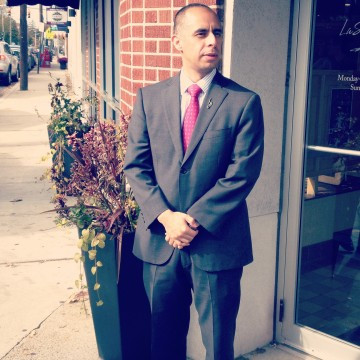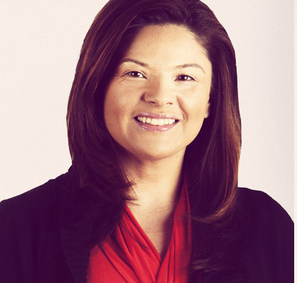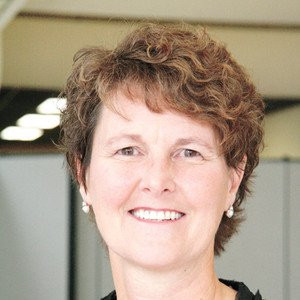Jencunas: Implementing Changes Will be Hardest Part of Fixing Schools
Thursday, December 03, 2015
Mayor Elorza recently wrote an op-ed in Providence Journal titled “Providence failed its students.” In it, mayor discusses the problems with Providence’s schools. The mayor wrote, and I agree, that the schools are among the worst in the nation for educating Latino students and that students who graduate are woefully unprepared for college.
Supporters of education reform should be delighted that Mayor Elorza is beginning a conversation about fixing Providence’s broken schools. However, starting the conversation is the easy part. What’s hard is implementing real solutions, especially when they disrupt the status quo.
While the mayor mentioned many important policies, meaningful education reform requires challenging liberal orthodoxy. That means fighting for more charter schools, making it easier to fire bad teachers, and rejecting the notion that more money alone can to get better results. Only once these changes have been made can new funding be put to good use.
GET THE LATEST BREAKING NEWS HERE -- SIGN UP FOR GOLOCAL FREE DAILY EBLASTEnglish Language Learners (ELL) are the children most harmed by Providence’s underperforming schools. According to Roger Williams University, ELL programs in Providence are among the worst in the nation. In one middle school, only 2.5% of students were proficient in English. There are real challenges to educating ELL students, and nobody expects perfection. But 2.5% proficiency is unacceptable no matter what the circumstances are. That statistic should be a glaring reminder of how badly Providence’s schools are failing our next generation.
Charter schools are the single most cost-efficient way to help ELL students. A study of the Texas school system, where ELL students are similarly common, showed that charter schools were most effective for ELL students and added the equivalent of 50 more school days. The advantage comes from flexibility and narrowly focused programs, which allow charters to tailor every aspect of their education to the ELL students. For a cash-strapped city like Providence, this is the kind of affordable advantage that the city needs to embrace. Mayor Elorza has been supportive of charters in the past, and continuing this support now that he’s a policymaker will show seriousness about education reform.
Beyond charter schools, education reform needs to make traditional public schools more effective. An easy way to do that is fire bad teachers. Unfortunately, preventing teacher accountability is a major goal of Teachers Unions, which are among the most important Democratic special interest groups. No business owner would operate under the constraints that a public school principal faces, and making schools better requires empowering leaders to remove bad employees.
As a Democrat, Mayor Elorza will always support the existence of public sector unions. He will never be a union-buster in the mold of Scott Walker, and nobody expects him to be. What he can do is ask for concessions, require Teachers Unions to stop protecting their worst employees and publically shame them if they refuse. Politically, this would require him to make concessions on payment and benefits, but that would be a good price to pay if it means getting bad teachers out of the classroom.
These are commonsense reforms, but politicians are often reluctant to take the risk of opposing the status quo. It’s easier to fall into convenient excuses for failure, which this case means blaming the state for not giving Providence enough money and blaming East Side families for hogging all the educational resources. But while those tired bromides earn applause, neither of them will help Providence’s schoolchildren.
Education reform gives Mayor Elorza the chance to be a profile in courage. He can stand up to the status quo and make real change, then use the credibility he’s earned from those victories to ask the state for more support. Expanding charter schools and making teachers accountable wouldn’t win the mayor any friends among the Democratic far-left, but it would be the kind of commonsense, honest leadership he campaigned on. Walking away from ideology and pursuing these solutions would make Mayor Elorza one of the rare politicians who fulfills a promise he campaigned on.
Brian Jencunas works as a communications and media consultant. He can be reached at [email protected] and always appreciates reader feedback.
Related Slideshow: RI Experts on the Biggest Issues Facing Public Education
On Friday November 22, the Hassenfeld Institute for Public Leadership at Bryant University, the Latino Policy Institute of Roger Williams University, the Rhode Island Association of School Committees, the Providence Student Union, and RI-CAN: Rhode Island Campaign for Achievement Now will host Rhode Island leaders in the public and nonprofit sectors for a symposium on "the civil rights issue of the 21st century, adequacy and equity and the State of Education in Rhode Island."
Weighing in on the the "three biggest factors" facing education in the state today are symposium participatnts Gary Sasse, Founding Director of the Hassenfeld Institute for Leadership; Christine Lopes Metcalfe, Executive Director of RI-CAN; Anna Cano-Morales, Chairwoman of the Board of Trustees, Central Falls Public Schools and Director, Latino Policy Institute at Roger Williams University; Tim Duffy, Executive Director, RI Association of School Committees; and Deborah Cylke, Superintendent of Pawtucket Public Schools.
Related Articles
- Jencunas: Residency Requirements - Bad Idea For City Boards
- Jencunas: Providence PawSox Stadium - Boon or Bust?
- Jencunas: The Gordon Fox Saga - An Opportunity For Republicans
- Jencunas: Potholes - An Opportunity for Elorza
- Jencunas: Gist’s Departure Leaves RI Education at Crossroads
- Jencunas: Juno Response Big Win For RI Elected Officials
- Jencunas: Elorza’s Challenges and His Best Chance at Success
- Jencunas: How Romney Can Win in 2016
- Jencunas: Obama’s State of the Union Victory Lap - and Wish List
- Jencunas: Gore in 2016?
- Jencunas: RI Unions - When You’re Out, You’re Out
- Jencunas: Trump - What the Clown Show Means for the Election
- Jencunas: Trump, Sanders and the Screw-You Voter
- Jencunas: Food Trucks Essential for Providence Success
- Jencunas: Conservative Case for the Downtown Smoking Ban
- Jencunas: Tomato Cans All Lined Up For Hillary
- Jencunas: A Tribute to Professor Jay Goodman
- Jencunas - The Providence Streetcar is a Bad Idea
- Jencunas: Elorza’s First 100 Days - Potholes and Snow
- Jencunas: How Inevitability Hurts Hillary Clinton
- Jencunas: Hoping Joe Biden Doesn’t Run for President














